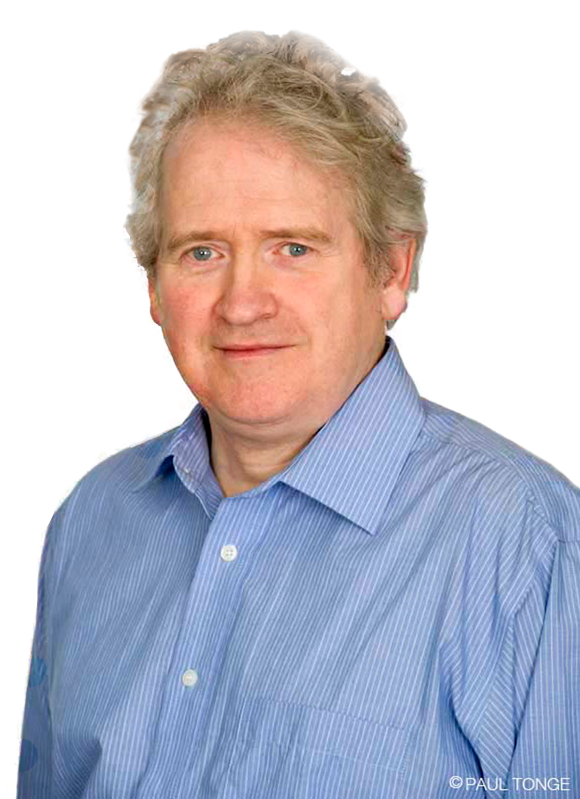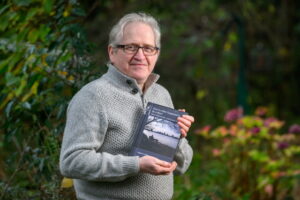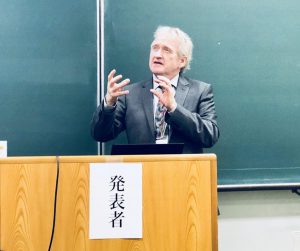Investigating the complexities of male childlessness
Dr Robin Hadley
Researcher, consultant, speaker, teacher and writer


Thank you for visiting my website. My name is Robin Hadley and I am a consultant, educator, lecturer, researcher, speaker and writer.
My area of research concerns the impact of male involuntary/circumstantial childlessness across the life course.
My research was the inspiration for BBC Radio 4’s Sideways programme ‘Broody Men‘ (Episode 80. First broadcast 11 February 2026).
My latest paper – Reproductive capital: theoretical foundations and empirical evidence from the workplace – is #FREE to download!
My book, ‘How is a Man Supposed to be a Man? Male Childlessness – a Life Course Disrupted‘ is out now and published by Berghahn Books. 
Flash sale ends 28th February – only at Berghahn Books website!
Use the following codes at the checkout:
E-book: HAD25 for 25% discount.
Paperback: HAD25 for for 25% discount.
Hardback: Code HAD35 For 35% discount.
Reviews of my book can be found on the ‘My Book‘ page.
The book is also available to purchase through all good bookshops and online at Google Books, Amazon and Kindle and to loan from public libraries. Find your local independent bookshop at Bookshop.org.
The Foreword, Introduction, most of Chapter 1 (‘Contexts of Childlessness’) and sections of other chapters can be viewed on Google Books Preview.
My book has been recently referenced on BBC Radio 4’s Woman’s Hour piece on ‘Fatherhood‘ (46 minutes in) and in Lucy Handley‘s article for The Guardian, ‘How I found joy in life without children of my own.’
Click on the ‘About‘ link above to find out more about me and the history of this website. Use the other links above to find out more about my work on various projects and publications. Links to podcasts and YouTube interviews, radio, and newspaper articles are located in the ‘Media’ section. Links to other resources can be found in the ‘Useful Links‘ section. Answers to questions I get asked most about can be found on the Frequently Asked Questions page.
I welcome enquiries from the media. To contact me please go to the Contact section.
UK Parliament Research briefing (2023), POSTbrief 56: ‘Men’s Health.’ Contributor.
UK Parliament Research briefing (2023), POSTbrief 56: ‘Men’s Health.’ Reviewer.
UK Parliament Health and Social Care Committee ‘Men’s Health‘ Inquiry (2023-4). Written evidence: ‘The hidden group of men who are at increased risk of health-related issues’ (document IMH0108).
UK Parliament Women and Equalities Committee ‘The rights of older people‘ Inquiry (2023-4). Written evidence: ‘The excluded: people ageing without children or family‘ (document ROPOO15).
The House of Lords Select Committee on Adult Social Care (2022) report, ‘A “gloriously ordinary life’’: spotlight on adult social care‘ includes my written evidence, ‘The invisible older men’ (ASC0002) page 38, sections 118-121.
The House of Lords COVID-19 Committee has accepted my written evidence arguing for the recognition of People Ageing Without Family (LBC0114) with regard to the long term effect of Covid-19.
Hadley, R. A., Mumford, C., Carroll, M., & Wilkinson, K. (2025). Reproductive capital: theoretical foundations and empirical evidence from the workplace. Frontiers in Sociology, 10. https://doi.org/10.3389/fsoc.2025.1608368 #FREE to download
Hadley, R.A. 2024. ‘Muted Voices of Invisible Men: The Impact of Male Childlessness.’ ‘Work-Life Inclusion: Broadening Perspectives Across the Life-Course’. Eds., Krystal Wilkinson & Helen Woolnough.
Hadley, R. A. 2024. Men and the desire for fatherhood: The effects of male broodiness on involuntarily childless men. Abstract of the Proceedings of the 5th International Conference on Psychology, Counselling and Education 2023, Cebu City, Philippines. Psychreg Journal of Psychology, 8(1), 57
Hadley, R. A. 2024. Anxious attachment as a predictor of adult childlessness. Abstract of the Proceedings of the 5th International Conference on Psychology, Counselling and Education 2023, Cebu City, Philippines. Psychreg Journal of Psychology, 8(1), 56
Hadley, R. A. 2023. The Impact of Male Involuntary Childlessness on Men’s Health Across the Life Course: Implications for Individuals, Healthcare Providers and Practitioners. Abstract of the Proceedings of the Men’s Health World Congress 2023, Kuching, Borneo. Journal of Men’s Health, 19(12), 127-139.
Marston, H. R., Morgan, D. J., Earle, S., & Hadley, R. A. (2023). Shiver Me Tinders and Ring a Ding for a Fling – Sex Tech Use during COVID-19: Findings from a UK Study. Healthcare, 11(6)
Hadley, R. A. 2021. ‘‘No longer invincible’: the impact of involuntary childlessness on older men‘, Physical Therapy Reviews 1-16.
Hadley, R. A. 2020. “Male broodiness: Does the desire for fatherhood affect men?” Psychreg Journal of Psychology 4(3): 67-89.
Hadley, R.A. 2020. ‘Men and Me(n).’ Methodological Innovations, 13: 2059799120918336
Earle, S., Marston, H. R., Hadley, R. A., & Banks, D. 2020. ‘The use of menstruation and fertility app trackers: A scoping review of the evidence.’ BMJ Sexual & Reproductive Health.
Marston, H. R., Hadley, R. A., Pike, G., & Hesketh, I. 2020. ’Games for Health & mHealth Apps for Police & Blue Light Personnel: A research review.’ The Police Journal: Theory, Practice and Principle
Hadley, R.A., Barry, J & Newby, C. 2019. ‘Anxious Childhood Attachment Predicts Childlessness in Later-life.’ Psychreg Journal of Psychology.
Hadley, R.A. 2019. ‘”It’s most of my life – going to the pub or the group”: the social networks of involuntarily childless older men.’ Ageing and Society.
Hadley, R. A. 2019. ‘The impact of male involuntary childlessness.’ Psychreg Journal of Psychology.
Hadley, R. A. 2018. ‘The lived experience of older involuntary childless men.’ In Sparkes, A. C. (Ed.), The Annual Journal of the British Sociological Association Study Group on Auto/Biography. Durham: BSA Auto/Biography Group, pp. 93-108.
Earle, S & Hadley, R. A. 2018. ‘Men’s views and experiences of infant feeding: a qualitative systematic review.’ Journal of Maternal & Child Nutrition, 14(13), e12586
Hadley, R. A. 2018. ‘“I’m missing out and I think I have something to give”: experiences of older involuntarily childless men.’ Working with Older People, 22(2), 83-92
My very first paper – based on my MA and MSc – can be found here:
Hadley, R.A., & Hanley, S. 2011. ‘Involuntarily childless men and the desire for fatherhood.’ Journal of Reproductive and Infant Psychology, 29(1), 56-68.
 Research on men who are involuntarily childless is important not only because of actual and projected demographic change but also because the evidence base on the effects of male involuntary childlessness on men as they age is virtually non existent. However, in many countries there are more childless men than equivalent women.
Research on men who are involuntarily childless is important not only because of actual and projected demographic change but also because the evidence base on the effects of male involuntary childlessness on men as they age is virtually non existent. However, in many countries there are more childless men than equivalent women.
It is estimated that in the UK by 2030 there will have at least two million people aged 65 and over without an adult child to support them if needed.
I became interested in male involuntary childlessness when studying for my Master of Arts in Counselling (2008) at The University of Manchester. I studied the topic for my dissertation and discovered there was very little information about men’s desire for fatherhood or experience of unwanted childlessness. In that study I interviewed 10 involuntarily childless men aged between 32 and 60+ years old. The majority of the participants linked their childlessness to episodes of depression. The desire for fatherhood peaked in the mid- 30’s and gradually declined. However, the wish for fatherhood did not cease.
Intrigued by the absence of the male voice in the research surrounding reproduction I self-funded my Master of Science (2009, The University of Manchester) to try and find the level of ‘broodiness’ in adults in females and males, non-parents and parents. The results of my mixed-methods study found that there was little difference in the desire to become a parent between female and male childless individuals. The findings also indicated that for some male participants not becoming a parent had a greater negative effect than reported by equivalent status female participants.
I completed my PhD at Keele University in 2015. My research study explored the experience of involuntarily childless older men and has gained much international attention (see the Media page).
A summary of my PhD thesis can be found in the ‘Research‘ section where the summaries of my MSc and MA dissertations are also available.
 If you are over 50 years old and consider yourself living without children you may be interested in the organisation Ageing without Children (AWwoC).
If you are over 50 years old and consider yourself living without children you may be interested in the organisation Ageing without Children (AWwoC).
This grassroots organisation aims to raise awareness of the issues faced by older people who are Ageing without Children or Family (AwoC) with governments, councils, academics, health and care institutions, and charities.
The Ageing without Children report ‘Our Voices’ provides a detailed response to the question ‘How will and should older adults without children approach their later years?’
The population of people ageing without children is hidden and remains unreported, under-researched and under-represented at all levels (see also my chapter ‘Ageing without children, gender and social justice‘ in Ageing, Diversity and Equality: Social Justice Perspectives. Edited by Sue Westwood).